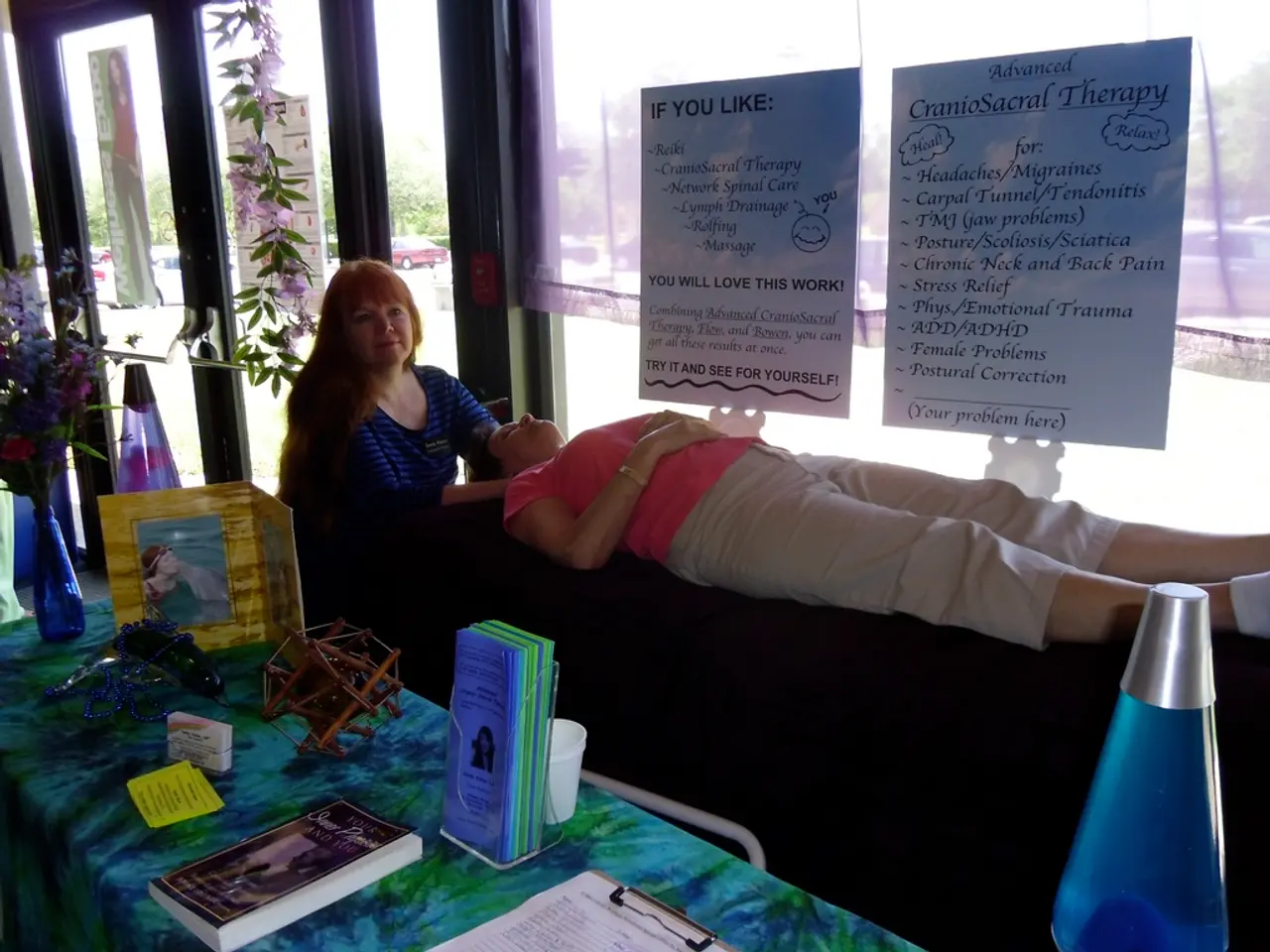Creating Your Personal Self-Care Regimen
In today's fast-paced world, it's essential to prioritise self-care to maintain mental, physical, and emotional well-being. A well-balanced self-care routine should include practices that nourish emotional, physical, social, spiritual, and intellectual needs.
Starting a self-care journey involves assessing current needs and challenges. Creating a personalised self-care routine should be achievable and realistic, starting with one or two habits at a time.
Physical self-care includes maintaining a balanced diet, engaging in regular exercise, and ensuring quality sleep. Focus on a balanced diet that includes a variety of fruits, vegetables, whole grains, lean proteins, and healthy fats. Consistency is key when it comes to exercise, even small amounts of movement can significantly improve mood and energy levels. Aim for 7-9 hours of sleep per night to support physical recovery and mental health, and establish a consistent sleep schedule to enhance sleep quality.
Emotional self-care involves practices that foster social connections, promote self-love, and reduce stress. Spend time with loved ones or engage in activities that foster social connections. These interactions can boost emotional well-being and resilience. Mindfulness and meditation practices have been shown to reduce stress and improve mental health outcomes. Engage in self-care activities that promote self-love, such as affirmations or journaling. This helps build self-esteem and emotional resilience.
Mental self-care involves stress management, engagement in hobbies, and boundary setting. Develop healthy coping mechanisms for managing stress, such as deep breathing, yoga, or short breaks during the day. Pursue hobbies or creative activities that bring joy and fulfillment. This can enhance mental well-being and provide a sense of purpose. Establish clear boundaries between work and personal life to maintain mental clarity and reduce stress.
When creating a personalised routine, it's important to assess your needs and set SMART goals. Utilise tools like food journals, fitness apps, or sleep trackers to monitor your progress and stay motivated. Remember, self-care should be scheduled into the day to become a natural part of the routine.
Proper self-care can improve mood and emotional regulation, lower stress levels and reduce anxiety, prevent burnout and chronic fatigue, and boost energy and focus. It's also important to remember that self-care is not selfish; it helps individuals show up more fully in every area of their life.
For those seeking additional support, our licensed online therapists can help you create a personalised, sustainable self-care plan. Remember, building and nurturing relationships that uplift and support you is a vital part of social self-care. Don't forget to celebrate small wins to stay motivated and remember that self-care should feel like support, not another source of stress.
[1] Healthline. (2021). The Importance of Self-Care: Mind, Body, and Spirit. [online] Available at: https://www.healthline.com/health/importance-of-self-care
[2] Mayo Clinic. (2021). Self-Care: Take Care of You. [online] Available at: https://www.mayoclinic.org/healthy-lifestyle/self-care/in-depth/self-care/art-20044231
[3] American Psychological Association. (2020). Mindfulness. [online] Available at: https://www.apa.org/topics/mindfulness
[4] Psych Central. (2021). The Importance of Self-Care. [online] Available at: https://psychcentral.com/lib/the-importance-of-self-care/00014695
- Mental health self-care can help reduce stress levels, lower anxiety, and improve emotional regulation, making it a crucial part of a well-rounded health-and-wellness plan.
- Education and self-development resources like mindfulness practices, as supported by science, can be incredibly beneficial for managing anxiety and promoting personal growth.
- In the pursuit of holistic well-being, mental-health self-care practices such as stress management, hobby engagement, and boundary setting can boost mental health, enhance focus, and prevent burnout or chronic fatigue.




